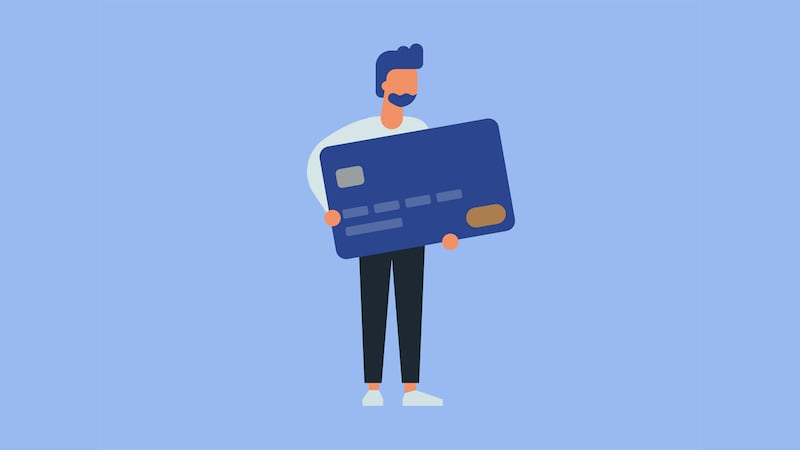Should you apply for a credit card with bad credit?

Quick insights
- While there is technically no such thing as a "bad" credit score, some people feel they have bad credit when their score is low. If you have a low credit score, you may be eligible for some credit cards, but these cards may not come with the most favorable terms.
- Understanding how your credit score works can be an important step towards better credit management.
- You can work to make the most of your current situation to help improve your credit and possibly unlock more financial opportunities in the future.
Sometimes life catches up to us and we realize finances may need a little more attention. Or maybe you’ve been dealing with some unexpected expenses that have hindered your ability to pay back debt. Whether you’re looking to get a credit card while you have a low credit score or want to improve your situation before applying for another line of credit, there are ways to adjust your current behaviors and to help make incremental changes to your creditworthiness.
Managing a negative credit history
Negative credit history typically occurs when an individual has a history of unfavorable credit behavior. This is typically illustrated through factors such as poor payment history or maxing out your credit cards, and the result is often a poor credit score (which amounts to a VantageScore® of less than 601 or a FICO® score less than 580).
Because creditworthiness—your ability to repay debts—is an important part of your ability to access financial opportunities, and is a significant factor lenders consider when granting approvals and determining rates, you may find yourself limited if your creditworthiness is low. It could be more difficult to get approvals for credit cards or get the rates you want.
While it may feel limiting to have a poor credit score, there could be some options available to you, such as secured credit cards or credit builder loans (note: Chase does not offer these services). You may also want to consider improving your situation before applying for your next line of credit.
Things to consider before applying for a credit card
Usually, anytime you apply for a line of credit, lenders run a hard credit check. A hard credit check can temporarily hurt your credit score, so it’s important to keep this in mind.
If you are approved for the credit card you applied for, you may be able to improve your credit history with responsible credit behavior. This means making your payments on time and keeping your balance(s) low in order to have a low credit utilization ratio (more on this later). In this scenario, you may want to look for a card that is meant for individuals looking to build their credit (they usually come with low annual fees, but potentially high interest rates and few rewards).
On the other hand, it’s possible you may not want to apply for another credit card if you have several outstanding balances. It’s may be beneficial for you to pay off your debts first. These could be credit card balances or loans. Consider creating a plan to handle your outstanding debts with on-time, monthly payments. If possible, you may work towards developing a debt management plan or working with a financial advisor to guide you through this process.
Ways to help improve your chances for potential approval
If you’re looking to apply for a credit card or other type of loan, you may be able to improve your chances for approvals by implementing a few helpful strategies. These include, but are not limited to:
- Consider adding a co-signer. Another financially responsible person added to the loan or line of credit may help show lenders that you are less of a risk because you have someone else—typically a financially responsible party with good credit—to help guarantee that the debt gets paid. Note that Chase does not offer this.
- Become an authorized user on a primary cardmember’s account. This way you may be able to have a new line of credit and the opportunity to help improve your credit history for future applications provided that the primary cardmember makes on-time payments.
- Review your credit reports for errors and report any inaccuracies to the respective credit bureau(s) so that when the potential lender runs a credit check, the information they receive is accurate.
- Save up for a larger down payment. If you need a car loan or mortgage, for example, you could offer the lender a larger down payment. This could help to alleviate some risk and may help improve your chances for approval.
Help improve your score before applying
Your credit score is generated with several important factors in mind. Understanding these and developing financially healthy habits can help improve your credit score, which may result in more chances of approvals. Pease note that lenders evaluate multiple factors when reviewing your application, not just your score.
Some ways to help improve your credit score include, but are not limited to:
- Lower your credit utilization ratio. This is the amount of credit you use against your total available credit. Lowering this ratio to 30% or lower is a good rule of thumb.
- Prioritize debt payments. You may consider methods such as the snowball method (paying smaller debts first) or the avalanche method (paying higher interest loans first).
- Make your payments on time. Payment history is an important part of your credit score; improving your on-time payment history may have a positive impact on your credit score with time and consistency.
- Avoid applying for too many lines of credit at once. As mentioned before, applying for a line of credit can result in a hard credit check, which can temporarily hurt your credit score. Try to prioritize applying for the lines of credit you absolutely need, and you can always apply for more once you’ve improved your financial situation.
In conclusion
Just because you find yourself with less than perfect credit doesn’t mean you can’t overcome it. You may still access lines of credit, but they may not have the most favorable terms you’re looking for. By implementing healthy credit habits, such as timely payments and paying off outstanding debts, you may slowly help increase your credit score and improve your overall financial opportunities.



